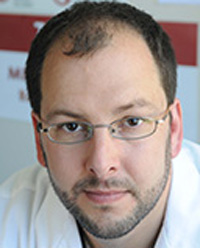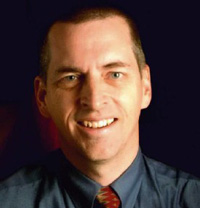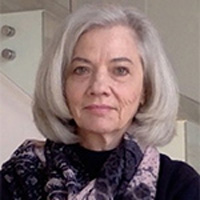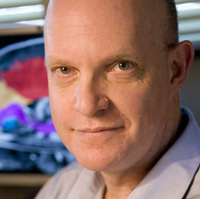Program
Big Data Neurosciences Workshop 2017
http://www.neurosciencenetwork.org/ACNN_Workshop_2017.htmlOrganized by the Advanced Computational Neuroscience Network and supported by the National Science Foundation
Thursday, September 7 2017
| Arrivals and check-ins | Biddle Hotel, Indiana Memorial Union |
Friday, September 8 2017
| 7:30 AM | Frangipani | Registration opens, Frangipani Room, IMU |
| 8:00 AM - 8:30 AM | Frangipani | Light breakfast |
| 8:30 AM - 8:45 AM | Whittenberger | Welcome Introductory remarks - Franco Pestilli |
| 8:45 AM - 9:00 AM | Whittenberger | Big Data and Cyberinfrastructure at IU (Bradley Wheeler Vice President for Technology) |
| 09:00 AM - 09:35 AM | Whittenberger | Keynote Vince Calhoun (University of New Mexico): The mind-research network: Large-scale analysis of multimodal medical images |
| 9:35 AM - 10:00 AM | Whittenberger | Invited Speaker Andrew Saykin (Indiana University School of Medicine): A systems perspective on Alzheimer's disease: Challenges and opportunities of multi-modality neuroimaging and -omics data. |
| 10:00 AM - 10:30 AM | Whittenberger | Invited Speaker Richard Gonzalez (University of Michigan): Statistical methods for big data neuroscience. |
| 10:30 AM - 10:45 AM | Coffee break | |
| 10:45 AM - 11:10 AM | Whittenberger | Invited Speaker Dhabaleswar K. Panda (Ohio State University): Exploiting High-Performance Computing (HPC) and Big Data to Accelerate Processing of NeuroScience Data. |
| 11:10 AM - 11:35 AM | Whittenberger | Invited Speaker Lei Wang (Northwestern University): SchizConnect Work-in-Progress: Data Mediation, BIDSification and Pipelines for Neuroimaging Research in Schizophrenia |
| 11:35 AM - 12:10 PM | Whittenberger | Keynote Randy Buckner (Harvard, Mass General Hospital): Deep Phenotyping of the Individual: Data Science Challenges and Opportunities |
| 12:10 PM - 1:20 PM | Frangipani | Lunch break and networking session |
| 1:20 PM - 2:35 PM | Whittenberger & Oak Room | Breakout Session
Session 1 in Whittenberger Session 2 in Oak Room |
| 2:35 PM - 3:35 PM | Frangipani | Coffee break and Poster Session |
| 3:35 PM - 4:35 PM | Whittenberger & Oak Room | Breakout Session
Session 3 in Whittenberger Session 4 in Oak Room |
| 4:35 PM - 5:00 PM | Whittenberger | NSF Programs Bill Miller, National Science Foundation |
| 5:00 PM - 5:25 PM | Whittenberger | Invited Speaker Ivo Dinov (University of Michigan): Predictive Big Brain Data Analytics. |
| 5:25 PM - 5:50 PM | Whittenberger | Invited Speaker Franco Pestilli (Indiana University): Brain-Life: Engaging Neuroscience in Big Data Reproducible Research. |
| 5:50 PM - 6:00 PM | Whittenberger | Concluding remarks and planning for Day 2 |
Saturday, September 9, 2017
| 8:00 AM - 8:30 AM | Frangipani | Light breakfast |
| 8:30 AM - 8:35 AM | Whittenberger | Introduction - Franco Pestilli |
| 8:35 AM - 9:10 AM | Whittenberger | Keynote Terry Jernigan (University of California, San Diego): The Adolescent Brain Cognitive Development (ABCD) Study |
| 9:10 AM - 9:35 AM | Whittenberger | Invited Speaker Satya Sahoo (Case Western University): A Scalable Neuroinformatics Workflow for Deriving Functional Brain Networks using Electrophysiological Signal Data. |
| 9:35 AM - 10:00 AM | Whittenberger | Invited Speaker Olaf Sporns (Indiana University): Network Neuroscience: Mapping and Modeling Complex Brain Networks. |
| 10:00 AM - 10:15 AM | Whittenberger | Coffee break |
| 10:15 AM - 10:40 AM | Whittenberger | Invited Speaker Melissa Cragin (Midwest Big Data Hub): Accelerating the Big Data Innovation Ecosystem. |
| 10:40 AM - 11:05 AM | Whittenberger | Invited Speaker Amanda Mejia (Indiana University): Borrowing strength from big data: Estimating resting-state networks and connectivity at the subject level with population-level priors. |
| 11:05 AM - 11:40 AM | Whittenberger | Keynote Brian Wandell (Stanford University): A project on scientific transparency |
| 11:40 AM - 12:00 PM | Whittenberger | Demonstrations |
| 12:00 PM - 12:30 PM | Whittenberger | Concluding remarks, future programming discussion |
| 12:30 PM | Frangipani | Program Concludes: Boxed lunches to go |
Keynote Speakers

Randy L. Buckner, PhD
Deep Phenotyping of the Individual: Data Science Challenges and Opportunities
No two individuals are exactly the same, and each person experiences transitions over time that can affect brain function and behavior. Typically human neuroimaging analyses combine measurements from many people, providing a fictional “average brain” that collapses meaningful variation. Recently our work has turned to exploring the detailed organization of individual brains and how that organization differs across people and changes over time. This push toward the individual brain is critical for clinical translation as well as a number of open questions about how transient brain states influence behavior. In this talk I will survey some of the informatics challenges and discoveries that arose from our development of low-burden large-scale data acquisitions across thousands of individuals and how these approaches have been redeployed to study the individual brain over time.
Randy L. Buckner is Professor of Psychology and of Neuroscience at Harvard University and affiliated with the Center for Brain Science. He is also Professor at the Harvard Medical School and the Director for Psychiatric Neuroimaging Research at the Massachusetts General Hospital. He received his Ph.D. degree in neuroscience from Washington University, under the direction of Steven Petersen and Marcus Raichle. He trained with Bruce Rosen as a postdoctoral fellow and then Instructor of Radiology at Harvard Medical School, where he pioneered new functional MRI methods to study human memory. His work expanded to include studies of Alzheimer's disease and neuropsychiatric illness. This work led to a description of the brain’s default network and how it is targeted early in the progression of Alzheimer’s disease. Over the past several years, his laboratory has targeted understanding the idiosyncratic organization of the brains of individuals. Professor Buckner’s awards include the Wiley Young Investigator Award from the Organization of Human Brain Mapping, the Young Investigator Award from the Cognitive Neuroscience Society, the 2007 Troland Research Award from the National Academy of Sciences, and the 2010 Award for Medical Research in Alzheimer’s Disease from the MetLife Foundation. He is a fellow of the American Academy of Arts and Sciences.

Vince Calhoun
The mind-research network: Large-scale analysis of multimodal medical images
Dr. Calhoun is currently Executive Science Officer at the Mind Research Network and a Distinguished Professor in the Department of Electrical and Computer Engineering at the University of New Mexico. He is the author of more than 500 full journal articles and over 550 technical reports, abstracts and conference proceedings. His work includes the development of flexible methods to analyze functional magnetic resonance imaging such as independent component analysis (ICA), data fusion of multimodal imaging and genetics data, neuroinformatics, and the identification of biomarkers for disease. Among other things, he leads an NIH P20 COBRE center grant on multimodal imaging of schizophrenia, bipolar disorder, and major depression as well as an NSF EPSCoR grant focused on brain imaging and epigenetics of adolescent development. Dr. Calhoun is a fellow of the Institute of Electrical and Electronic Engineers, The Association for the Advancement of Science, The American Institute of Biomedical and Medical Engineers, The American College of Neuropsychopharmacology, and the International Society of Magnetic Resonance in Medicine.

Terry Jernigan
The Adolescent Brain Cognitive Development (ABCD) Study
The ABCD Study is a landmark, nationwide longitudinal study focusing on health and mental health of adolescents. The consortium will enroll 11,500 children and perform repeated assessments that include multimodality MR imaging, biospecimen collection for genetic, epigenetic, hormonal, and other biomarker assays, and mobile technologies for passive data collection. In addition, multiple environmental factors will be assessed. The children will all be 9 or 10 years of age when enrolled and followed for 10 years. Some of the primary objectives of the study are to:
- Identify individual developmental trajectories (e.g., of brain, cognitive, and emotional development, academic progress), and the factors that can impact them.
- Develop national standards of normal brain development in youth.
- Examine the roles of genetic vs. environmental factors on development, (e.g., by analysis of data from 800 twin pairs who will be recruited as part of the cohort).
- Study the effects of physical activity, sleep, as well as sports and other injuries on brain development and other outcomes.
- Study the onset and progression of mental disorders, factors that influence course or severity; and the relationship between mental disorders and substance use.
- Determine how exposure to various levels and patterns of alcohol, nicotine, caffeine, cannabis, and other substances affect developmental outcomes and vice versa.
In this presentation, the emphasis will be on the open science model adopted by the ABCD Study, and on a description of the evolving data repository.
Dr. Terry Jernigan is Professor of Cognitive Science, Psychiatry, and Radiology, and Director, Centerfor Human Development at the University of California, San Diego. For over 30 years, she has studied the human brain using noninvasive imaging. This work has focused on brain development and aging, neurodevelopmental disorders, neuropsychiatric and substance use disorders, and neurodegenerative disorders. For the last decade her central research interest has been the developing human mind and brain, with a focus on the dynamic neurodevelopmental processes that give rise to human individuality—and on how these processes are affected by experience, substance exposure, genetic variation, and other factors. She is Co-Director of the Coordinating Center for the ABCD Study. She serves on the Council of Councils of the National Institutes of Health, and on the scientific advisory boards of several research organizations in the United States and Europe.

Brian A. Wandell
A project on scientific transparency
The complexity of neuroimaging data and methods limits our ability to check one another’s work. When Bob Dougherty and I developed the infrastructure for an MRI center at Stanford, we were determined to try to help investigators manage the large-scale neuroimaging data and to support them by providing computational tools. Our ambition was to provide an experimental environment that supports both sharing published data and the computational methods used to analyze the data.
I will describe the cloud-scale collaborative-science (CS)2 software tools we are developing to help scientists steward neuroimaging data and computations. Data from our instruments are directly imported into a database that is managed by the Center. Data sets are checked for completeness and critical functions (backups, quality assurance, file type conversion) are automated. Mechanisms for sharing platform-independent computations are part of the system. Our approach to making the system sustainable through a commercial entity will be described.
It is our view that the data and analytic software should be the heart of our publications; the accompanying article should describe the data and results so that colleagues can check one another’s work so that we can improve and extend published data and analytical methods.
Note. This work is in collaboration with Gunnar Schaefer, Michael Perry, and Renzo Frigato. We are grateful to the Simons Foundation and Arnold Foundation for their support and Victoria Stodden, Dave Donoho, and Mattan Gavish for useful discussions.
Commercial Disclosure: Flywheel Exchange, LLC.
Brian A. Wandell is the first Isaac and Madeline Stein Family Professor. He joined the Stanford Psychology faculty in 1979 and is a member, by courtesy, of Electrical Engineering and Ophthalmology. He is Director of Stanford’s Center for Cognitive and Neurobiological Imaging, and Deputy Director of Stanford’s Neuroscience Institute. Wandell’s research centers on vision science, spanning topics from visual disorders, reading development in children, to digital imaging devices and algorithms for both magnetic resonance imaging and digital imaging. Wandell graduated from the University of Michigan in 1973 with a B.S. in mathematics and psychology. In 1977, he earned a Ph.D. in social science from the University of California at Irvine. After a year as a postdoctoral fellow at the University of Pennsylvania, he joined the faculty of Stanford University in 1979. Professor Wandell was promoted to associate professor with tenure in 1984 and became a full professor in 1988. In 1986, Wandell won the Troland Research Award from the National Academy of Sciences for his work in color vision. He was made a fellow of the Optical Society of America in 1990; in 1997 he became a McKnight Senior Investigator and received the Edridge Green Medal in Ophthalmology for work in visual neuroscience. In 2000, he was awarded the Macbeth Prize from the Inter-Society Color Council, and in 2007 he was named Electronic Imaging Scientist of the Year by the SPIE/IS&T, and he was awarded the Tillyer Prize from the Optical Society of America in 2008. He was elected to the American Academy of Arts and Sciences in 2011. Oberdorfer Award from the Association for Research in Vision and Ophthalmology, 2012. In 2014 he was awarded the highest honor of the Society for Imaging Science and Technology. In 2016 he was awarded the George A. Miller prize of the Cognitive Neuroscience Society. Wandell was elected to the US National Academy of Sciences in 2003.
Contributed Talks
Oral presentations are scheduled on Friday for 12 minutes each with 3 minutes question and answer period following each talk.
Session 1: Whittenberger Auditorium
1:20PM-1:35PM: Individual differences in brain functional network organization relate to behavior by Benjamin A Seitzman, Caterina Gratton, Timothy O Laumann, Evan M Gordon, Babatunde Adeyemo, Adrian W Gilmore, Jeffrey J Berg, Mario Ortega, Annie Nguyen, Deanna J Greene, Kathleen B McDermott, Steven M Nelson, Bradley L Schlaggar, Nico Uf Dosenbach and Steven E Petersen
1:35PM-1:50PM: Estimation of White Matter Fiber Parameters from Compressed Multiresolution Diffusion MRI using Sparse Bayesian Learning by Pramod Pisharady, Stamatios Sotiropoulos, Julio Duarte-Carvajalino, Guillermo Sapiro and Christophe Lenglet
1:50PM-2:05PM: Seed to whole brain dynamic functional connectivity revealed through a dual clustering approach by Lorenzo Pasquini, Jesse Brown, Jeresy Deng, Yann Cobigo, Adam Staffaroni, Joel Kramer and William Seeley
2:05PM-2:20PM: Analysis Challenges for Big Data from Optical Imaging by Mark Reimers
2:20PM-2:35PM: Overdominant effect of a CHRNA4 polymorphism on cingulo-opercular network activity and cognitive control by Sepideh Sadaghiani, Bernard Ng, Andre Altmann, Valerio Napolioni and Michael Greicius
Session 2: Oak Room
1:20PM-1:35PM: Designing High-Performance and Scalable Middleware for HPC and Deep Learning by Hari Subramoni
1:35PM-1:50PM: Inflammatory imaging phenotype discovery in panoramic radiographs leveraging high throughput computing by Gary Pack, Mark Craven and Amit Acharya
1:50PM-2:05PM: NeuroScience Meets HPC Cloud: Designing High-Performance MPI and Big Data Libraries on Virtualized InfiniBand Clusters for NeuroScience Applications by Xiaoyi Lu and Dhabaleswar Panda
2:05PM-2:20PM: The Eurekometric Connectome: Discovering neuroscience research pathways by Malhar Jere, Ravi Kiran Raman and Lav Varshney
:20PM-2:35PM: Widespread distribution of tau occurs in preclinical Alzheimer’s disease by Stephanie Schultz, Brian Gordon, Shruti Mishra and Yi Su Stephanie Schultz, Brian Gordon, Shruti Mishra, Yi Su, John Morris, Beau Ances, and Tammie Benzinger
Session 3: Whittenberger Auditorium
3:35PM-3:50PM: Maximizing the individual fingerprints of human functional connectomes through decomposition into brain connectivity modes by Enrico Amico and Joaquin Goni
3:50PM-4:05PM: Prediction of mild cognitive impairment progression to Alzheimer’s disease using multiple data sources by Yogatheesan Varatharajah, Ravishankar Iyer and Prashanthi Vemuri
4:05PM-4:20PM: T-SNE projections of single trial ERP's demonstrate a reduced sensitivity to environmental regularities in patients with schizophrenia by David Bridwell, Benjamin Liddle, Kent Kiehl, Godfrey Pearlson and Vince Calhoun
4:20PM-4:35PM: Brain connectivity differences in bipolar and unipolar depression during win and loss anticipation by Anna Manelis, Jorge Almeida, Richelle Stiffler, Jeanette Lockovich, Haris Aslam and Mary Phillips
Session 4: Oak Room
3:35PM-3:50PM: Brain connectivity-informed regularization under generalized linear model via griPEER by Damian Brzyski, Marta Karas, Jaroslaw Harezlak, Timothy Randolph and Joaquin Goni
3:50PM-4:05PM: Simultaneous NIRS and EEG Responses to Investigate the Role of Chromatic Separation on Visual Discomfort by Sarah Haigh, Nicholas Cooper and Arnold Wilkins
4:05PM-4:20PM: Molecular Alterations of the Blood-Brain Barrier in Brain Metastases of Lung Cancer by Gozde Uzunalli, Makayla Wiley, Chinyere Kemet and L. Tiffany Lyle
Posters
Posters will be on display in the Frangipani Room during the workshop. Please join us for a coffee break and poster session from 2:35PM to 3:35PM on Friday.
Poster 1: Developmental changes in visual scene statistics by Christina Deserio, Jason Gold, Swapnaa Jayaraman, Rowan Candy and Linda Smith
Poster 2: MPI-LiFE: Designing High-Performance Linear Fascicle Evaluation of Brain Connectome with MPI by Shashank Gugnani, Xiaoyi Lu, Franco Pestilli, Cesar Caiafa and Dhabaleswar Panda
Poster 3: Accelerated Analysis and Mining of BigData using Spark and TensorFlow over RDMA by Rajarshi Biswas, Xiaoyi Lu and Dhabaleswar Panda
Poster 4: Accelerating the Performance of Scientific Applications using MVAPICH2 MPI Library by Mohammadreza Bayatpour, Sourav Chakraborty, Hari Subramoni and Dhabaleswar Panda
Poster 5: OASIS-3: MRI, PET, and Clinical Data on Normal Aging and AD from over 10yrs of Follow-up by Pamela LaMontagne, Lauren Wallace, Sarah Keefe, Tammie Benzinger, John Morris, Krista Moulder, Randy Buckner, and Daniel Marcus
Poster 6: Exploring Differences in Gene Expression and Relative Cell-Type Balance in the Hippocampus of a Selectively Bred Rat Model for Internalizing and Externalizing Psychiatric Disorders by Isabelle Birt, Megan Hagenauer, Sarah Clinton, Cigdem Aydin, Peter Blandino, Fan Meng, John Stead, Robert Thompson, Stanley Watson and Huda Akil
Poster 7: Accelerating Apache Hadoop on HPC Clusters and Case Studies with Neuroscience Applications by Haiyang Shi, Xiaoyi Lu and Dhabaleswar K. Panda
Poster 8: A comparison of methods of batch correction in a confounded experimental design. by Ying Ma, Megan Hagenauer, Elyse Aurbach, Jun Li, Marquis Vawter, Robert Thompson, Cortney Turner, William Bunney, Richard Myers, Jack Barchas, Alan Schatzberg, Stanley Watson and Huda Akil
Poster 9: The Effects of the Top 20 AD Risk Variants on Brain Amyloidosis by Eddie Stage, Liana Apostolova, Tugce Duran, Shannon Risacher, Naira Goukasian, John West, Triet Do, Holly Wilhalme, Kwangsik Nho, Meredith Phillips, David Elashoff, Andrew Saykin and Diana Svaldi
Poster 10: Neurogenomics of Paternal Care in Three-spined Stickleback Fish by Syed Abbas Bukhari, Christopher H Seward, Michael C Saul, Huimin Zhang, Rebecca M Trapp, Noelle James, Sihai D Zhao, Sriram Chandrasekaran, Lisa Stubbs and Alison M Bell